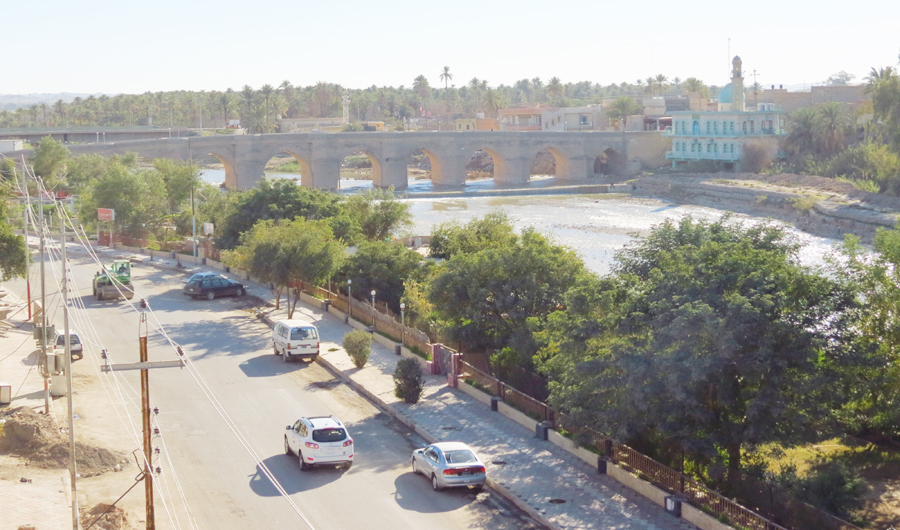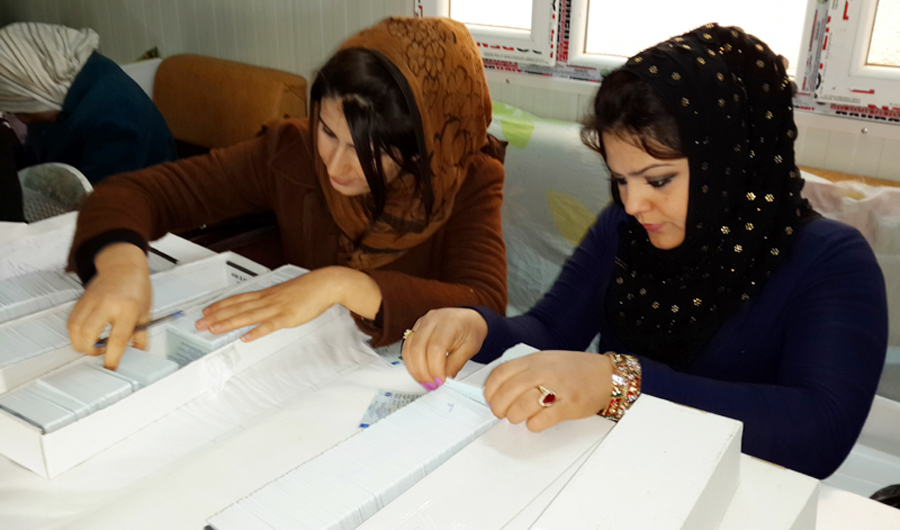The Kurdish parties have nominated five women to compete for a quota seat for women out of 14 seats of Diyalah Arab-dominant province divided into four electoral districts.
Four of the candidates are running in the fourth electoral district which allocates three seats for the Kurdish-dominant areas of Khanaqin, Jalawla, Qaratapa, Sa’adiya and Jabara.
The new electoral law divides Iraq’s 18 provinces into 83 electoral districts. These districts are based on the number of quota seats set aside for women in parliament, as the constitution requires that 25% of the parliament’s 329 seats be designated for women.
Demonstrators calling for reform in October 2019 called for a new electoral law that blocks the road in the face coalition by the leading parties and opening a corridor for the Iraqi younger generation to run for elections and implement reform in the war-torn country fatigued by corruption and mismanagement.
The patriotic Union of Kurdistan PUK led by the son and nephew of late Iraqi president Jalal Talabani has elected one lady in district four of Diyala while the Kurdistan Democratic Party KDP led by Masoud Barzani and the Kurdistan Social Democratic Party KSDP each candidated 2 women.
Each electoral district od Diyala nominates three members to Iraqi parliament in upcoming October 10th elections and a seat in each district is allocated for women representation in the parliament.
“We have nominated 2 ladies to get quota seats and hop we can make it,” said Ibrahim Aziz, in charge of KDP election affairs in Diyala province.
The KDP hope the electoral commission to find a way that allows IDPs to vote.
Following retaking control in the disputed territories by Iraqi forces in October 2017, supporters of the KDP fled the dispute territories retaken by Iraqi forces. There are no accurate figures how many Kurdish families fled Khanaqin and the disputed territories.
The KDP accuses PUK of collaboration with Iran-backed Shiite militias then while the later accuses it of intriguing Iraqi government by carrying out a referendum for independence in September 2017 which covered the disputed territories of Kirkuk and Khanaqin.

Khanaqin, Diyala- The Corniche street on the side of Alwand River. Photo by Hawry Azad.
The Kurds have failed to form a unified Kurdish bloc for the parliamentary elections.
In 2018, Kurds have won only 1 seat out of 14 seats of Diyala. They have made almost 45,000 votes yet only PUK won a seat for about 19,000 in district four.
Hussein Jalil, KSDP official in Khanaqin, said “nominating only women shows there is a threat to the Kurdish votes so the focus is on woman quota seat in order to avoid loss of votes.”
“Due to absence of a unified (Kurdish) list and multi candidates, Kurdish votes will apart. We wanted to implement nationalist not partisan method but we couldn’t so all the eyes are on quota seat.”
Due to absence of a unified (Kurdish) list and multi candidates, Kurdish votes will apart.
39 candidates compete for the three seats of electoral district four of Diyala, 24 male and 15 female candidates.
Women are pleased for their nomination despite the fact it is a political technique to earn more seats.
Mihabad Suleiman, a women rights advocate in Khanaqin, calls on the Kurdish parties to show respect for women capabilities and potentials especially in politics.
“This is a nationalistic duty for women in the disputed territories of Diyala in roder to get our rights. I believe the political parties want to give women a bigger chance in the elections and make a gender balance as well,” she added.
“Even if the parties aim at women quota seats, it’s a chance for women to show their skills and hope they defend women rights and their campaign slogans.”
The disputed territories extend from Khanaqin in the east on the border with Iran to the oil rich city of Kirkuk heading to the west of Mosul in Shingal, home to Ezidi ethno-religious minority, on the border with Syria.





